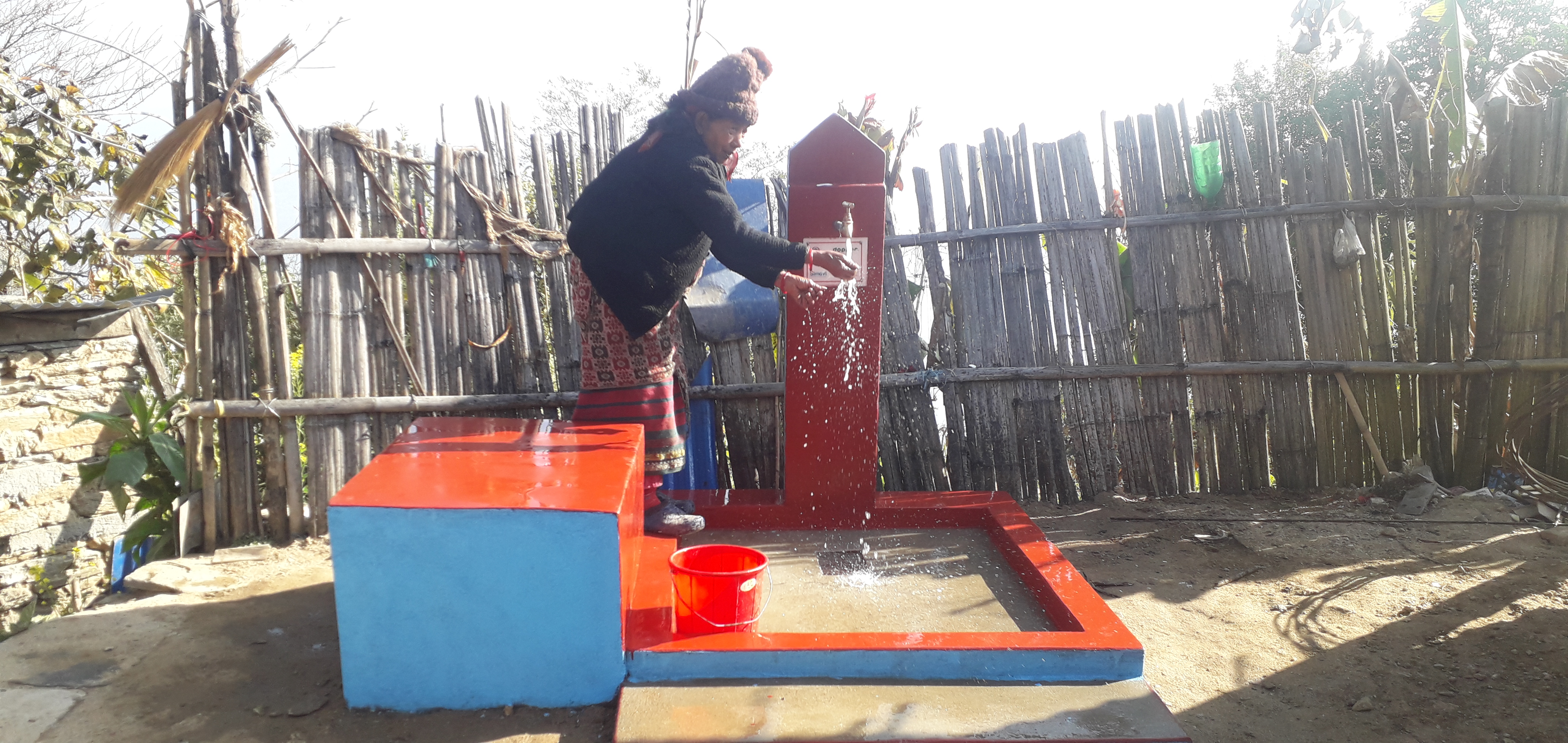A change story of Rupa Shrestha
Before SEBAC Nepal constructed Thulodhara Drinking Water and Sanitation Scheme in Kalinchwok rural village ward no.3, community people used to get water from various unreliable, contaminated open water sources. There was no regular water supply service in the community. People used unprotected open pipelines in emergency cases. There was always a high risk of waterborne diseases to the whole family. This is the story of Rupa Shrestha, a local resistant and one of the beneficiaries of Thulo Dhara DWSS. Rupa Shrestha, even a treasurer of the Thulo Dhara DWSS, pointed to a water filter commonly used in a household. She said: “We have observed a reduction in water-borne diseases such as jaundice and diarrhea in our community.
"I have enhanced my knowledge of total sanitation, use of water, and way to trigger community. After my mobilization at the community through the door-to-door visit, I found behavior changes in women, they preserved water safely, make use of soap while washing hand, and their houses were found clean," said Rukmani Shrestha, FCHV, Sipapokhare, Sindhupalchowk.

Children do not fall sick frequently due to an outbreak of water-borne diseases. Most of them are seen attending school regularly. The majority of households have started using water filters at home. This practice is producing encouraging results. Good health of the community members means less expenditure in medicines. We can use our hard-earned money in other productive activities.” She further shows and explains the toilet of her house that we have captured in the figure as well. She never thought of maintaining her toilet and taking care of it as it is directly connected to her as well as her family’s health. However, taking different orientation classes on the importance of WASH in one’s daily life has brought about a drastic change in her lifestyle.